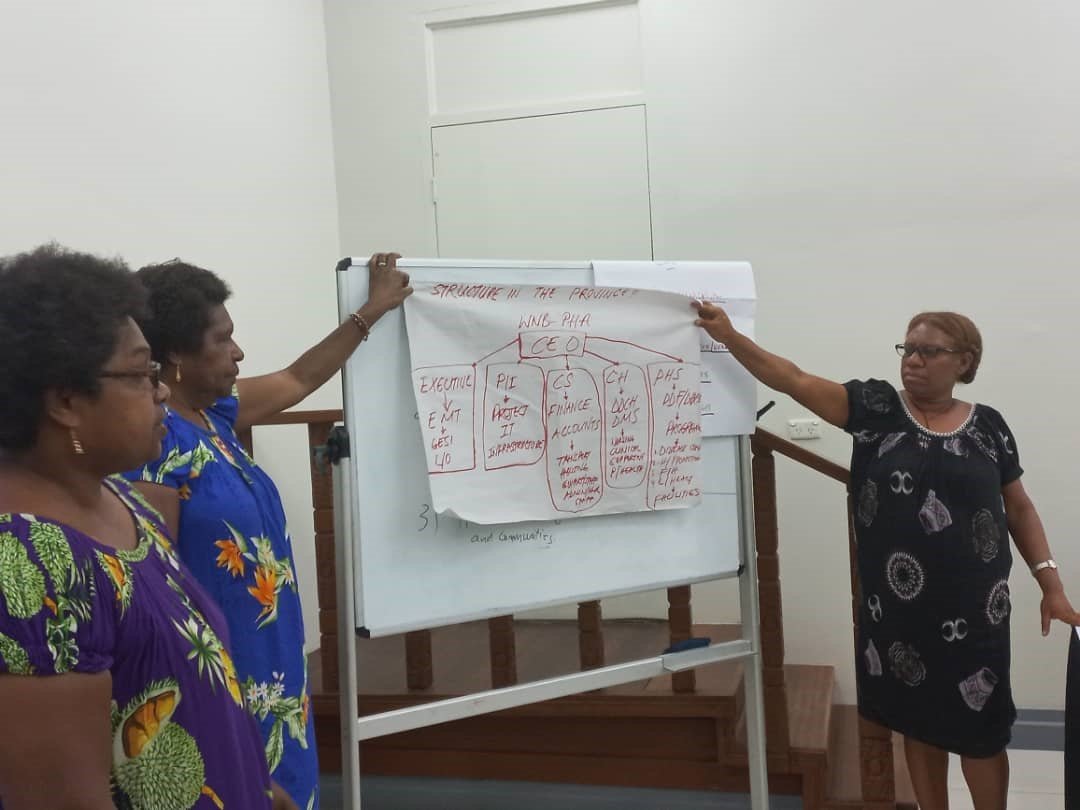Working at the forefront of One Health on human, animal and environmental health
The theme for World Field Epidemiology Day 2022 (on 7 September) is Empowering Field Epidemiologists for Stronger Health Systems. As we wrote in an earlier blog, to celebrate, we are sharing weekly stories from Pacific field epidemiologists on the frontlines in our programs for each of the Day’s six sub-themes.
Today we are pleased to introduce you to Bethseba Peni, a Field Epidemiology Training in Papua New Guinea (FETPNG) graduate, FETPNG faculty and Surveillance Officer in West New Britain Provincial Health Authority. Bethseba is on the Technical Working Group for the new Frontline program launching in Papua New Guinea and will also be a facilitator on the program. Bethseba shares with us here why a One Health approach is so critical in preparing for and responding to public health events and what the vision is for this in Papua New Guinea, speaking to the fifth sub-theme for World Field Epidemiology Day 2022: Working at the forefront of One Health on human, animal and environmental health.
Bethseba Peni (on right) facilitating group work with FETPNG colleagues and fellow faculty
One Health is important because health security issues do not only occur among the human population, they happen within the animal population, the environment and also the wild. For effective response to these issues, all stakeholders from these areas must have the capacity and know-how to address the health security issues. We, here in PNG, have experienced disease outbreaks in humans, sudden death of animals, oil spillage into the rivers and oceans and, of course, natural disasters. It is, therefore, important to respond to health security issues with the involvement of all stakeholders involved across human, animal and environment sectors.
In PNG, I would say, understanding and implementation of the One Health approach is currently limited. The main focus of health in the country is humans and every other sector comes second when it comes to health priorities. I once received a report from a village that a cluster of pigs were dying suddenly, but there was no effective mechanism in place for us to be able to respond effectively. PNG is prone to natural disasters, however team work from stakeholders in other sectors involved is not always implemented. There are no plans in place for joint action when we face these security issues affecting our health. There is also no availability of data from these sectors, and we do not yet have the capacity to monitor wildlife. In addition to working with other government sectors, community members must be made aware or sensitised through community engagement. Uniform training and knowledge must be imparted to relevant stakeholders at all levels so the public – if faced with certain health related issues – know whom to communicate and respond to.
Bethseba (on right) facilitating a group training session with colleagues
The One Health approach is a very good approach and has been implemented in many countries, with Thailand as an example of a successful implementing country. I undertook a two year advanced FETP in Thailand in 2015 to 2017 and the training curriculum captured the human, animal, environment and the wild life. Training was given out to all sectors involved so when affected with health related issues they know what to do. If we want to implement a stronger One Health approach here in PNG, we need to work in collaboration with relevant sectors. The Frontline Field Epidemiology Training Program in Papua New Guinea is the way forward. We must support it in all sectors and roll it out to all other provinces of PNG.
FETPNG has taken on board the training of Frontline officers from the human health, animal health and the environment sectors. My province (West New Britain Province) will be one of 2 pilot provinces for the program. There were 2 stakeholders meeting already conducted, training participants from the mentioned sectors finalized with training dates set. We are now ready to do community engagement to help us identify health related issues from the community level perspective which will help guide the fellows projects and once completed we will commence the training. The training comprises of 3 phases and we are excited to be commencing the 1st phase on the 10th – 15th October 2022.
Bethseba training on community engagement
Thank you Bethseba!
If you missed our previous World Field Epidemiology Day sub-theme blogs featuring John Landime sharing about his experience fighting outbreaks and health emergencies, including COVID-19, on the frontlines, Symphorian Sumun sharing about Strengthening surveillance systems to detect public health threats early, Stanley Masi sharing his experience of enabling effective outbreak management and public health emergency response, or Timen Apae writing about ensuring quality health data for evidence-informed policy and decision-making, you can catch up here.
Next week we will have our final World Field Epidemiology Day story from the field for 2022 - we look forward to sharing it with you!
If you missed our first email newsletter, you can find it here and subscribe here to have all the feel-good field epi news delivered straight to your inbox each month!



